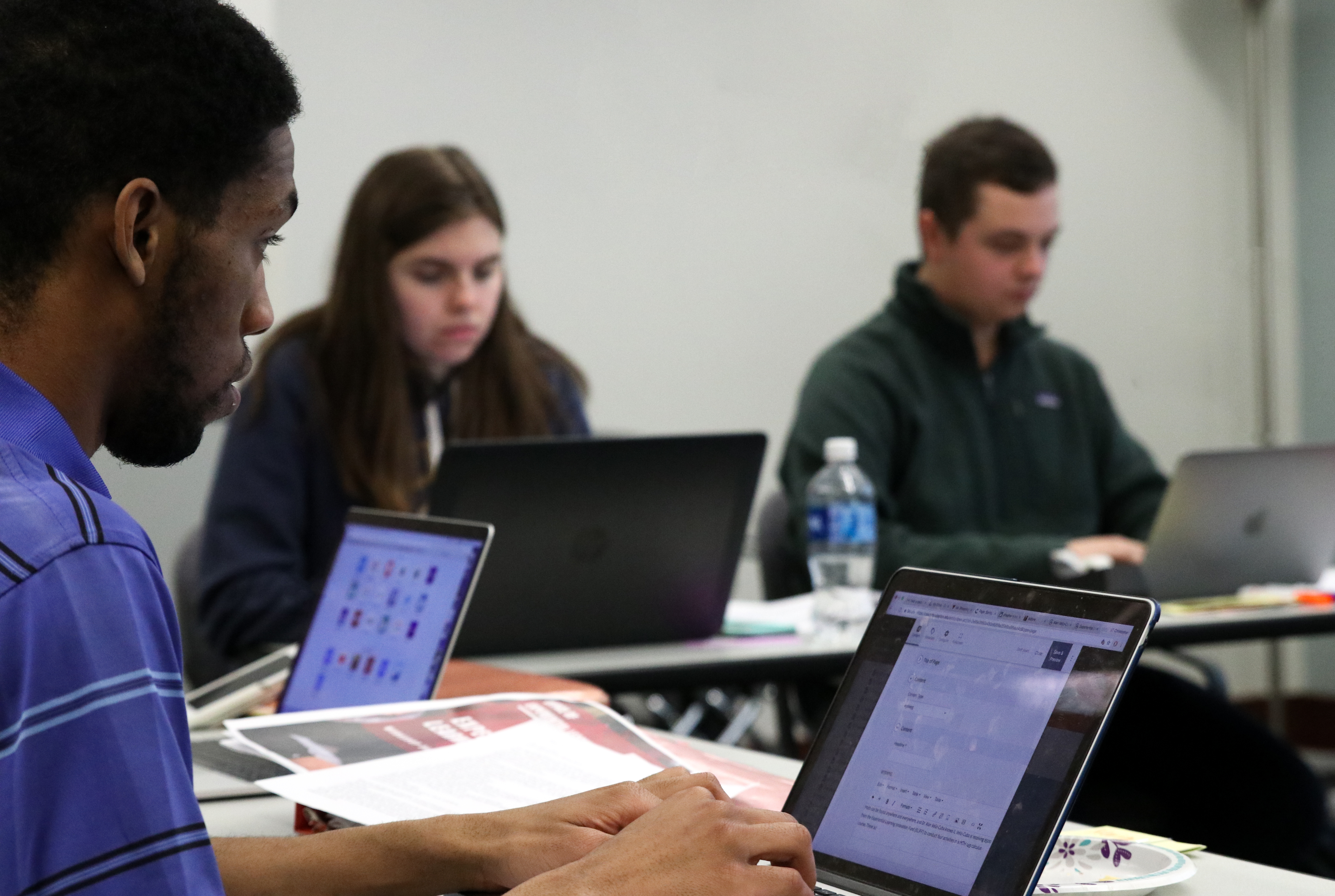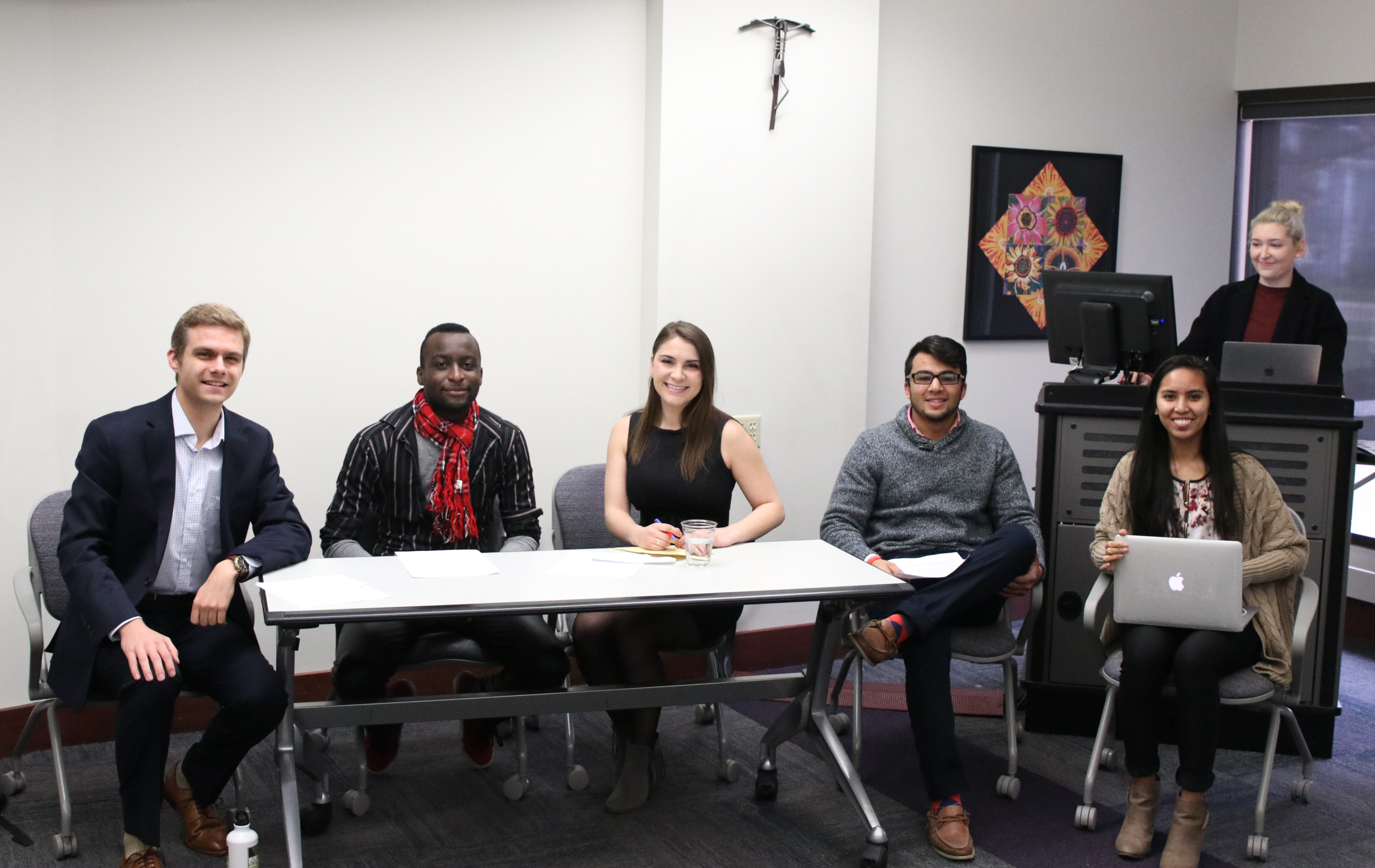LTC

Reflections on Students’ Engagement with Experiential Learning
By Karen Velasquez
University of Dayton students are often engaged in many high-impact experiential learning activities throughout their college journey, including research, community-engaged learning, education abroad, faith and vocation programs, leadership and professional development programs, internships, co-ops, student employment, and more. What is the meaning, impact, and value of these experiences for students? How do students make connections between experiential learning and other personal, academic, and professional experiences and goals? These are some of the guiding questions that students reflect upon in the EL Lab, a workshop facilitated by the director of Experiential Learning and student employees in the Office of Experiential Learning. The labs began in July 2017 as a way to investigate how students make meaning of their experiences, and how they articulate the connections among their various learning experiences. As a new director of EL, I was especially interested in learning from students voices and perspectives. Together with my research assistant, we signed up a few volunteers for our first Lab in the LTC by introducing ourselves to students around campus, and we also asked the Experiential Learning Advisory Group to nominate student participants.
From July 2017 to April 2018, we held nine lab sessions with a total of 35 students. There were 18 male and 17 female participants; 23 were seniors, five juniors, two sophomores, four first-year and one graduate student. Students represented 38 different majors (including double majors), with the majority coming from the College of Arts and Sciences, followed by the School of Engineering, the School of Business, and the School of Education and Health Sciences. There were two international students from Oman and China; the rest were domestic students. Collectively, these 35 students had participated in a total of 144 EL activities at the time of the workshop. Among these 144, there were approximately 44 leadership experiences through student organizations, fraternities and sororities, and professional-development activities such as conference presentations. Twenty-six of these were community-engaged learning experiences, 11 research experiences, four faith-based campus ministry experiences, seven co-ops, 36 internship and student-employment experiences, and 21 education-abroad experiences (some abroad experiences also incorporated community-engaged learning). On average, students had participated in four memorable and impactful EL experiences at the time they participated in the workshop.
During the EL Lab, students reflected on their experiences and wrote “Integrated Stories of Realizations,” discussed EL with peers and OEL student workers including a Peer Advisor and Digital Media Producer, created visual maps of their learning journeys, and participated in video-recorded interviews about their EL stories. Students explored how they had been transformed through EL, and how they envisioned applying what they had learned to make a positive impact in the world. The lab was beneficial for students because it allowed them a time and space to think more deeply about their learning experiences and practice communicating their narratives to different audiences. Students expressed they had not often been presented with opportunities to analyze their experiences from a holistic lens or intentionally integrate experiences inside and beyond the classroom. As a result, I believe many students enjoyed this authentic, novel, and supportive environment; we formed trust, relationships, and communities of practice around EL together, and students gained new and more complex ways of understanding and discussing EL.
As a result of the EL Lab, many students reported feeling more confident in their ability to communicate about what they had learned over time and how they could apply that knowledge in the future. Students’ oral and written reflections and interviews showed that not only had they gained important skills and confidence through their different hands-on learning experiences, but they also gained a deep desire to help others and make the world a better place. Working with my student employees to design and facilitate the EL Lab was also a great experience. I believe student input and participation is important and essential as we think about how to best develop and implement EL opportunities at UD. Reflection is such a valuable activity, not just for students but for all of us -- we learn about ourselves and each other, and realize how much we have in common as we discover new avenues and possibilities for learning in the process. And reflection can also be effective in many forms, from writing and dialogue to activities involving digital media. The Office of Experiential Learning has compiled an archive of students’ EL Lab interviews and a collection of students’ reflections, for any faculty or staff who are interested in learning more. If interested contact Karen Velasquez at kvelasquez1@udayton.edu.


